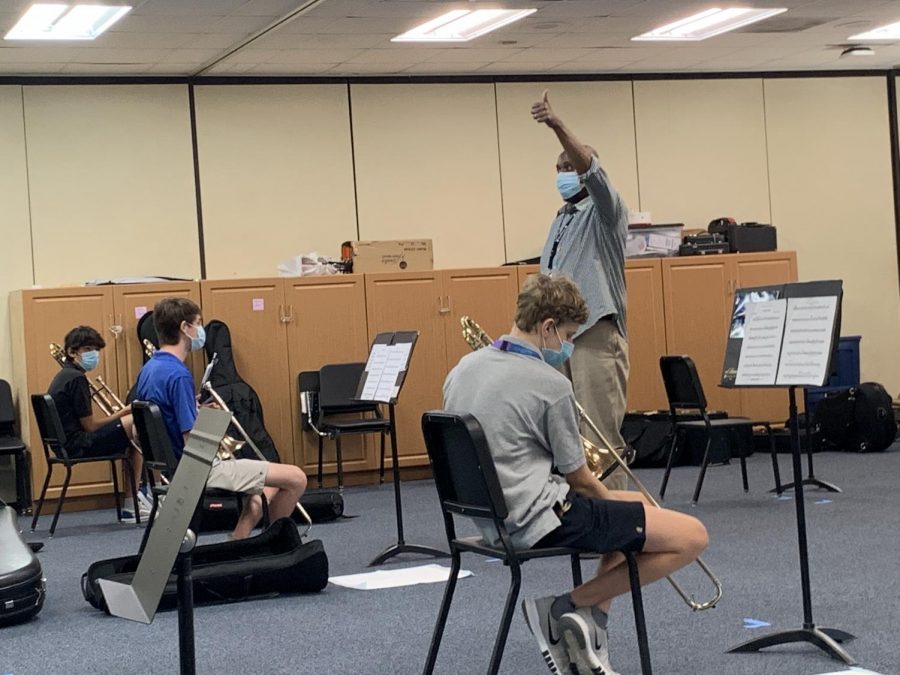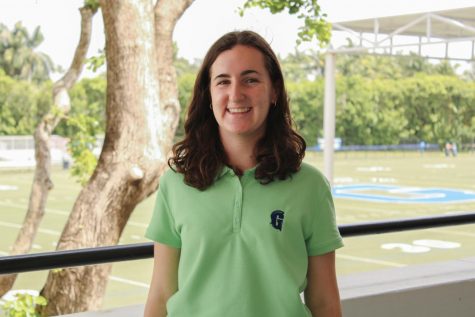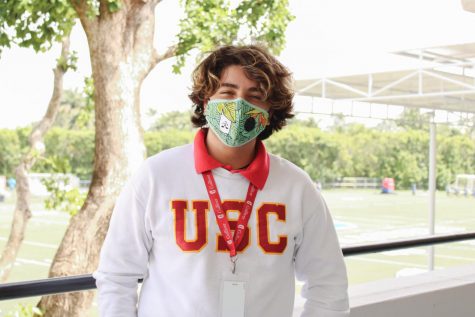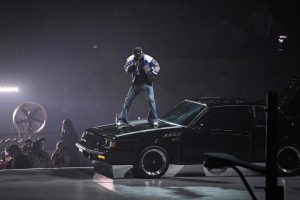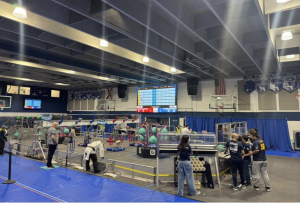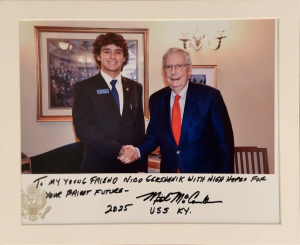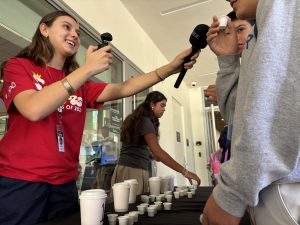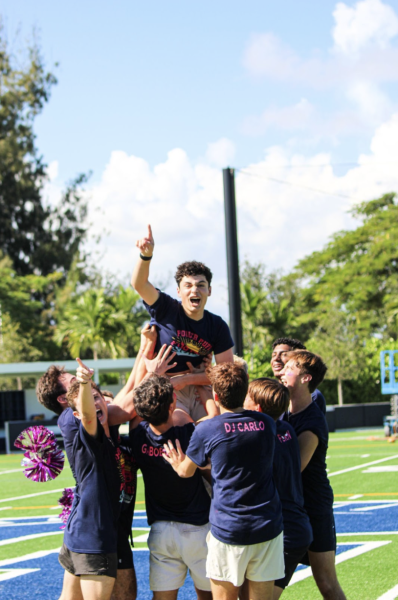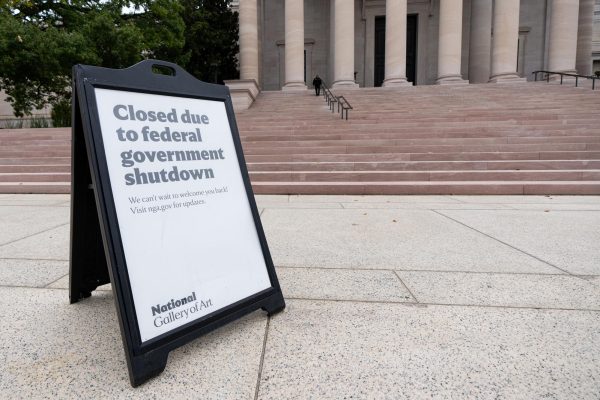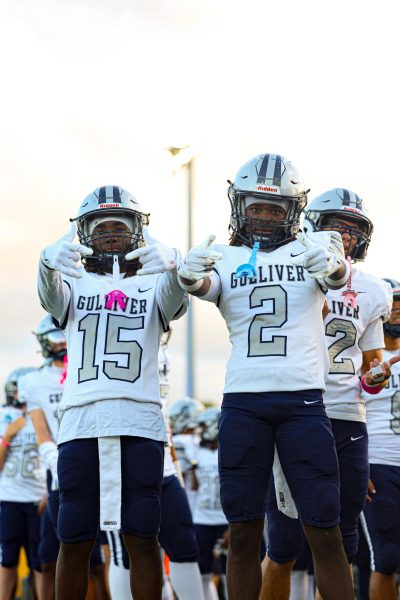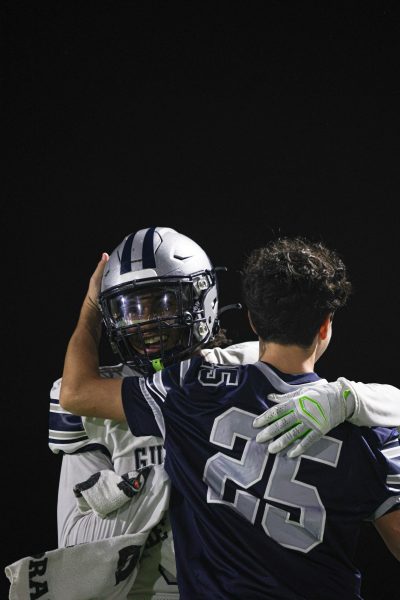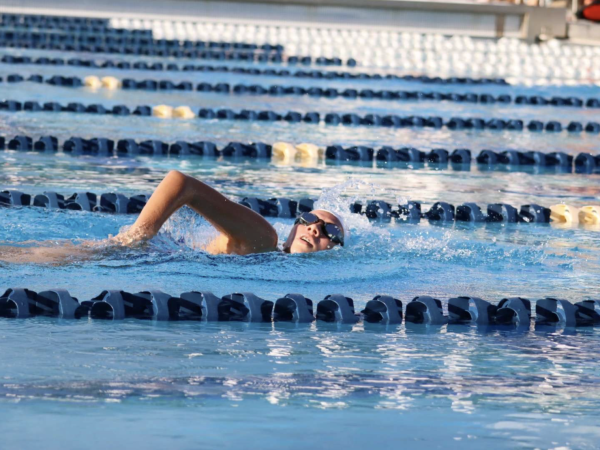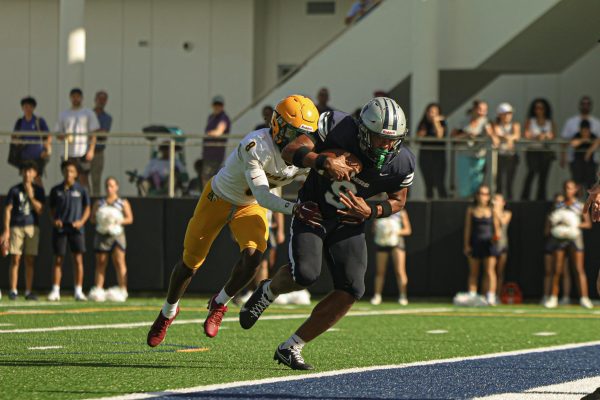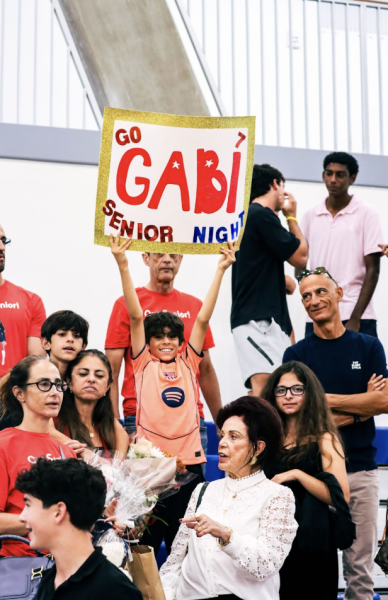Music Department in Harmony Despite COVID Chaos
Music Director Rufus Jones conducts hybrid band rehearsal. The Music Department is one of the most impacted groups at school, as it is difficult to keep audio in sync and practice instruments when some students are online and some are in person.
October 15, 2020
Most music students will not hesitate to say that the music program is more than just another class: it is a family and a community. Members of the band and orchestra typically grow close through performances, trips, and classes together throughout the year. However, 2020 has challenged these traditions and the group’s sense of camaraderie, as COVID-19 restrictions dictate that the majority of musicians cannot so much as see each other in person.
Figuring out how to teach and perform music simultaneously over both a physical and virtual format has been one of the biggest puzzles for the Music Department to solve since hybrid learning began. New safety precautions have changed usual class routines — for example, in-person students must wear special masks while playing their instruments, there are specialized pads on the floor for brass instruments, students can only play for thirty minutes at a time, and social distancing protocols have been incorporated into orchestra and band rehearsals.
“I understand that music is a really hard class to teach virtually, but the band only sounds good when our sound is distributed throughout the instruments,” said junior Julian Concepcion, who plays bass clarinet. “I think our conductor is doing his best to have us all come together, and from what I can see there’s a lot of improvement in how we are doing. No one is really getting mad about it.”
Meanwhile at home, students attending class virtually often find it difficult to keep up with their in-person peers. These students say it is difficult to match timing with classmates while still watching the conductor, and even more challenging is the nearly unavoidable audio lag that accompanies digital services like Zoom.
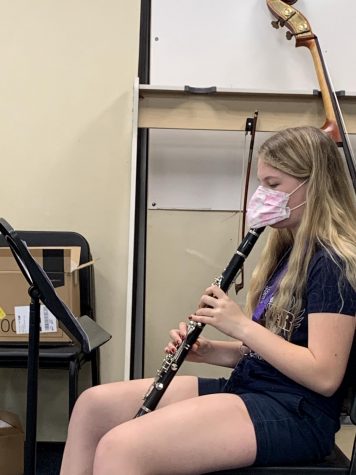
“We are doing the best we can, but technology has its faults,” said junior Emma-Grace Delvillar, who has chosen to attend school virtually. Delvillar has been a member of the orchestra since fourth grade, but also plays percussion in the concert band. “You can’t really hear the differences between all the different sections, and sometimes the microphone will pick up one person significantly more than another. I personally have just been doing things by ear.”
Music Director Rufus Jones has addressed some of these issues by alternating when online and in-person students play in class and requiring all students to turn in audio recordings to track their progress.
“It’s really a trial-and-error kind of thing because no one has done this before,” Jones said. While finding new alternatives to in-person rehearsals was difficult at first, all members of the Music Department can agree that progress and improvements are slowly being made.
There is also uncertainty around how music students will carry out performances and concerts. After the department held a successful final concert virtually in June, it has already been determined that the annual Winter Concert will be held in a similar manner since many musicians are attending school online. However, the Music Department remains hopeful that the Spring Concert, the culminating event of the year, can still be performed in-person and possibly outdoors.
Jones and Assistant Music Director Samantha Tamayo say their priorities lie in keeping students safe while still finding ways to encourage the usual camaraderie among members of the band and orchestra. One of these activities is a new “Fun Friday” tradition, where students play games and have competitions after rehearsal at the end of the week.
“Although it’s not the same, we are doing our best to keep the family atmosphere alive,” said Tamayo. “We have formed committees in each ensemble that work together to create a fun hybrid activity each week. Some of those activities include Kahoot, get to know you quizzes, and online multiplayer games on their devices.”
Even though in-class routines are different this year, many students pursue their passions for music outside of school — and for some, like junior Jason Fieler, the quarantine setting has brought a new burst of creativity for songwriting. Fieler recently released an album titled “Visit the World,” consisting of twenty original songs, some even involving collaboration with his friends and classmates, including Delvillar.
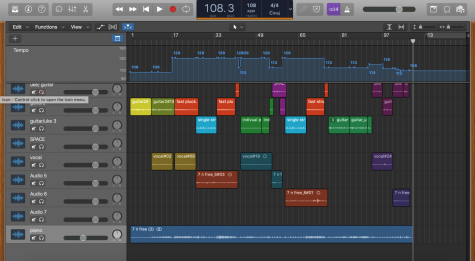
“During those first two or three months when I started to really make a lot of music we had almost no physical freedom, which ironically gave me more freedom to be musically expressive,” said Fieler. “Now since we can’t really go anywhere, I thought [the title] was a good way to have the album be a reminiscence of when we could travel, but also excitement for when we can again.”
Other students who have used music as an outlet during quarantine include senior David Gonzales, who recently released a rap album, and sophomore Lia Fletcher, who released a single in January. Jones has in the works a listening party for these students.
“I’m proud of [the students] and we should support them and applaud them for what they do outside class,” said Jones. “It’s a great testament to how important music is, not just as a class, but as a culture and a way of dealing with the realities of our lives. It shows that we can succeed in this hybrid and recognize that no matter what we have to do, music is that important to us and that’s why we keep moving forward.”

